Impressions about the Omega Speedmaster Pilot Flight Qualified
It's a bit of an oddity... but is it oddly cool?
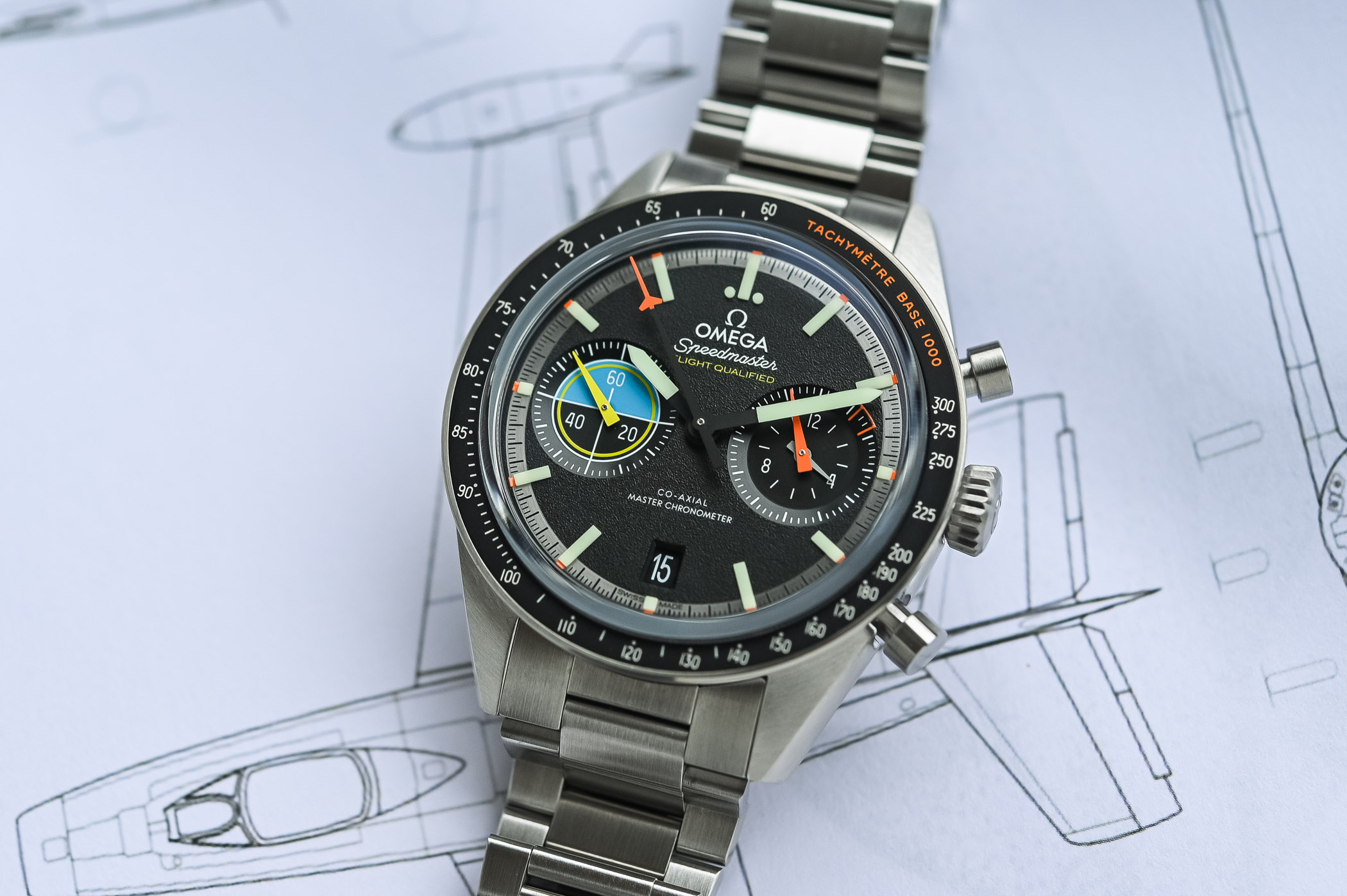
About a month ago, out of the blue, Omega released a new, rather polarizing and unique-looking version of its emblematic chronograph, the Speedmaster Pilot Flight Qualified. Well, it wasn’t really out of the blue, but we’ll come back on that in a few. Colourful, tool-oriented and with a dial full of references to the world of aviation, it is a watch with a completely different style from what we’ve come to expect from the streamlined Moonwatch – it’s also very different technically. We had the chance to get our hands on one of these Speedmaster Pilot watches and I’m going to share some of my impressions… Is it oddly cool or just odd? Let’s find out.
Background
The Speedmaster started life in 1957 as a racing chronograph to measure average speeds and also introduced the concept of the external bezel with a tachymeter scale, hence its name, to the watchmaking world. However, it quickly changed vocation during the 1960s to become the watch of choice for US Air Force pilots and, of course, NASA astronauts. From that moment in time, the Speedmaster became a true pilot’s watch, and aside from the Speedmaster Racing models, it kind of forgot its original vocation as a motorsport timer.
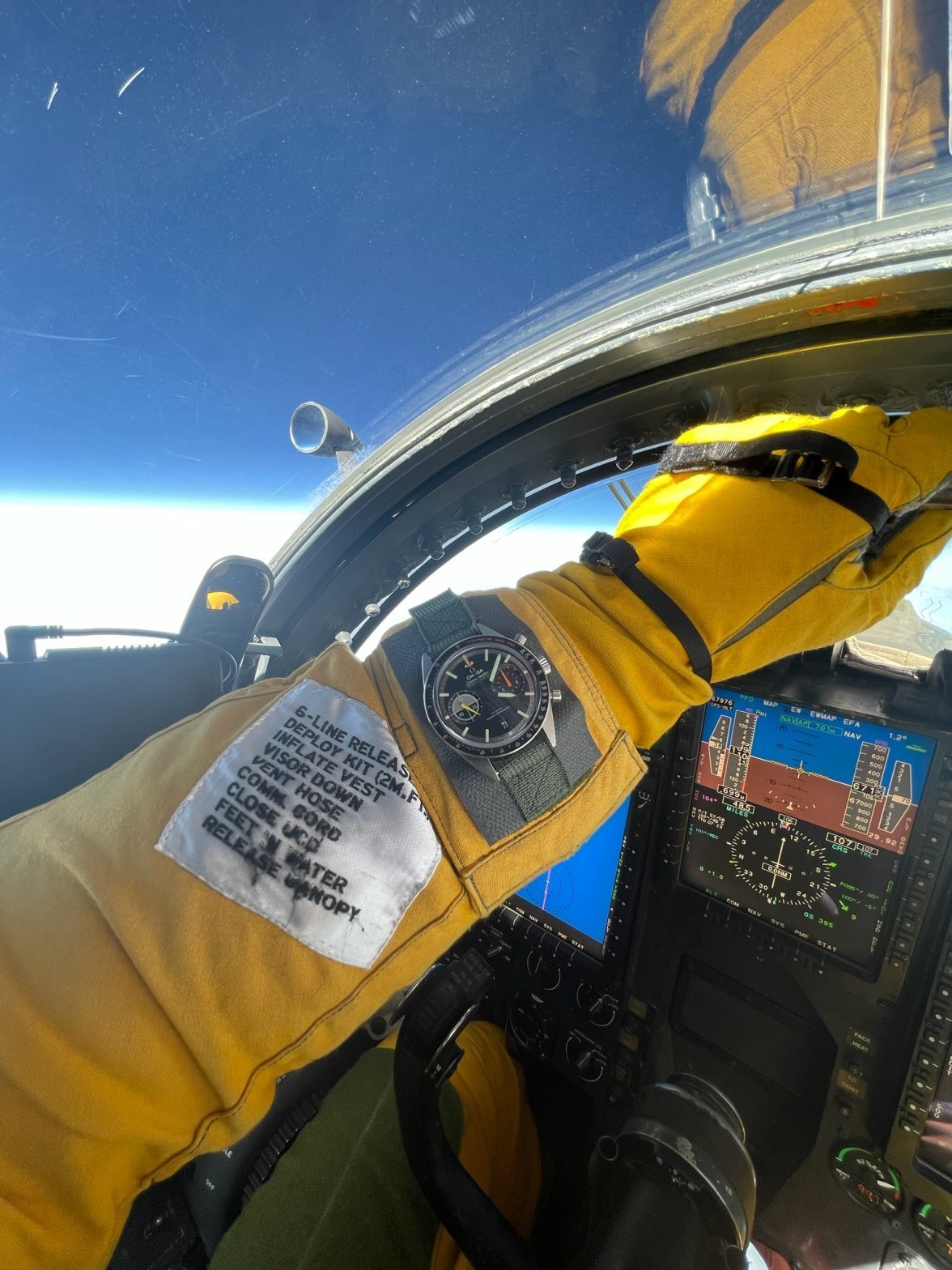
There is a story behind the Speedmaster Pilot Flight Qualified. The watch you see here didn’t spring out of the blue; there was a rather special watch built on the same idea a few months before. But not one was made available to the public. Originally, the Speedmaster Pilot was developed for US military pilots as a proper mil-spec model. The watch was discovered on social media at the end of September through leaked internal documentation and pictures posted by US military pilots on Forums – including photos of the watch in action, inside a jetfighter cockpit where it belongs. Immediately, the watch generated discussions, and its inspiration became clear to those with a bit of Omega knowledge… This military-issued Speedmaster Pilot managed to introduce a Flightmaster vibe.
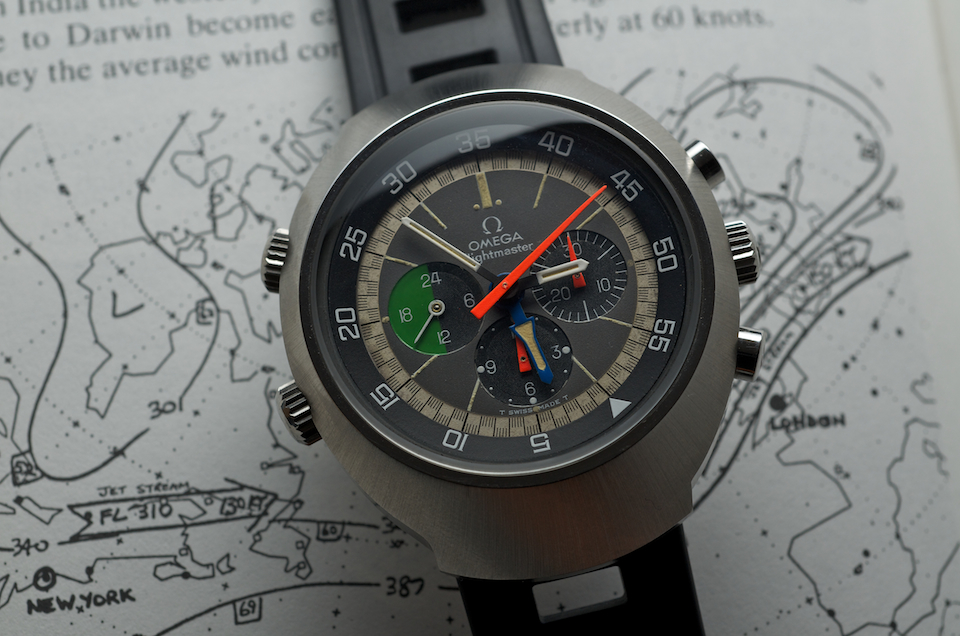
The Flightmaster, as explained in this in-depth story, was launched in 1969 and, with its easily identifiable sections and an additional time zone, was marketed exclusively to pilots. It was typical of the era, with a helmet-shaped case that was rather close in style to the Speedmaster Mark models of the same period – Mark II, Mark III, and so on. Compared to a traditional Speedmaster, the Flightmaster was equipped with a colour-coded dial and pushers, all to make the life of pilots simpler. It featured 3 crowns, 2 pushers, a rotating bezel, 7 hands and an evolution of the calibre 861 with an extra GMT complication and a 24-hour indicator. The hands relative to the chronograph function were bold and orange-toned, at least in the first generation. The second generation became slightly simpler. But it remained a true navigator’s watch with dedicated complications.
The Speedmaster Pilot Flight Qualified
And then, in December 2024, Omega introduced a new Speedmaster, basically the civilian version of the mil-spec model we mentioned above: the Speedmaster Pilot Flight Qualified. And while close to the US military model, Omega decided to revise the concept for this civilian version slightly. All in all, as we’ve already seen in our first article, the Flight Qualified is a watch that stands out from the collection. It is something of an oddity that doesn’t share much with any existing watch and yet uses familiar parts. Plus, it has a unique look that’s quite polarizing.
The base of this Speedmaster Pilot is that of a Speedmaster 57, yet not entirely. What we’re looking at is a symmetrical case inspired by the early Speedmaster models, with straight lugs and a more elongated look and feel – compared to the Professional Speedmaster Moonwatch with its twisted lugs, known to be wider but surprisingly shorter and more compact. But if the base is close to the ’57, there are some notable evolutions on almost all technical aspects of the watch – the main one being the transition from a hand-wound movement to an automatic calibre 9900, with all the impacts it has on the case.
As we mentioned, we’re looking at a fairly narrow watch with a diameter (at the bezel) of 40.85mm. It’s a bit more than the Speed 57, but that’s all due to the different bezel and the middle cases being identical. However, it’s not a small watch as the lug-to-lug is measured at 49.60mm, making it, like all symmetrical Speeds, fairly long on the wrist. Thickness is rated at 14.65mm. Allow me to make this comment. I know that it isn’t particularly thin, but I must say that Omega has made an effort to produce an automatic Speedmaster with fairly reasonable dimensions. A Speedmaster Racing, for instance, a watch with the same base movement, is 44.25mm in diameter and 15mm in thickness. So while the Speedmaster Pilot isn’t the sveltest of watches, it is better than anything else we’ve seen before with this movement. And yet, we have a 100m water-resistance.
What’s special about this watch is the “militarisation” of its design and finish. As you can see, the whole case is matte. Like ALL matte. The entire case, the caseback and the bezel ring are in brushed steel, but so are the pushers and the crown – the latter being unique, too, as it has a conical shape (which I’ve only seen recently). The bezel is matte black aluminium and includes a tachymeter scale with the vintage “Dot Over Ninety” and “Diagonal to Seventy” printings, as well as orange accents. The caseback is solid steel, reinforcing the instrumental vocation of the watch. The dial is protected by a highly effective anti-reflective sapphire crystal. I personally like the whole stealth treatment and the shape of the watch. Some commentators on social media noted the non-protected pushers – not the best inside a cockpit -, and I don’t really like the way the pushers are integrated within the caseband – that milled area around the pushers isn’t the most elegant or refined.
The other important element of the Speedmaster Pilot Flight Qualified is its unmistakable dial. Without a doubt, Omega has created a niche model that will be divisive. As said, there’s a clear Flightmaster vibe to this watch without being a re-edition – it lacks some of the 1969 watch’s functions anyway. The display is a classic automatic two-counter Speedmaster – with the traditional single sub-register for the elapsed hours and minutes at 3 o’clock, the apanage of the calibre 9900. The rest is fairly new, however. The base has a coarse, grained texture – anti-reflective and quite pleasant – framed by a brushed metallic minutes track, which features large applied Super-LumiNova blocks in 3D. There’s no doubt that there’s a 1970s vibe here, without mentioning the bold touches of colour and the shape of the handset.
Time is indicated by matte black central hands with either SLN blocks (hours/minutes) or a varnished orange aeroplane tip (central seconds), all very 1970s pilot’s watch. There’s a date window at 6 o’clock, too, which, in my opinion, could have been deleted in such a military-inspired model (plus, it would have reduced the height a bit more). What really catches the eye is the style of the sub-dials. The 3 o’clock sub-dial, used for the chronograph indications, features a triangular matte orange hand and transferred white numerals, as well as graduations that mimic the “burn rate” indicator in aircraft cockpits – a 6-minute scale that I’m still trying to understand (feel free to explain that in the comments if you know).
The 9 o’clock small seconds comes with a target/sight aesthetic inspired by cockpits, featuring a varnished matte yellow hand and artificial horizon in blue – one of the major differences with the mil-spec model, which featured a black-grey sub-dial. This element is purely a design trick and serves no navigation purposes… It certainly looks quite cool and adds some character to the watch, but the vintage Flightmaster used such sections to differentiate day from night. That being said, those who know the calibre 9900 also know that its 12-hour sub-dial can be used as an additional time zone – as long as you start at the right moment. All in all, it’s a detailed, quite complex, and maybe gimmicky dial, but it’s one that somehow works. It does the trick of being odd but in a good way. So, to answer my initial question, yes, to me, the Speedmaster Pilot Flight Qualified is oddly cool.
The watch is delivered with a fully brushed stainless steel flat-link bracelet, closed by a folding clasp with an easy-adjustment system, which allows two different positions for a total comfort extension of 2.30mm – practical and well-engineered. The bracelet is similar to the one fitted to the Speedmaster 57, except for the matt finish, of course. The watch is also delivered with an additional grey NATO strap reinforced with Kevlar threads, along with a special travel pouch and a strap-changing tool (a quick-release system would be welcome).
Inside the case is the powerful and advanced calibre 9900. This modern, highly technical movement has an integrated architecture with a column wheel and a vertical clutch. It is also a Master Chronometer calibre certified by METAS, with Co-Axial escapement, free-sprung balance and silicon balance spring. It is capable of great accuracy and magnetic resistance. Equipped with barrels mounted in series, it can store up to 60 hours of energy and also comes with a practical time zone function for the hour hand – which comes in handy for pilots crossing time zones while flying without disturbing other timekeeping indications.
Conclusion
The Omega Speedmaster Pilot Flight Qualified is weird… It’s not a classic, consensus-driven model that will speak to a large audience. It’s a polarizing, quirky thing with a vintage vibe and military inspirations. At the same time, it’s everything you’d expect a modern Omega to be: over-engineered, fully equipped, robust, and maybe trying too hard on certain technical levels (but that’s also what Omega is good at). And it’s not perfect either and comes with some (acceptable) flaws. And yet, it has character and charm, a unique appeal that will speak to a relatively restrained group of watch enthusiasts – me included.
I doubt the Speedmaster Pilot Flight Qualified will be the next big hit in stores or the brand’s top seller. It’s a niche timepiece, and that’s all fine, too! At least Omega dares to do things that are striking and different. The watch is now available and part of the permanent collection at EUR 10,400 (incl. taxes) or USD 9,500 (excl. local taxes), which is the same price as a Speedmaster 57 on a steel bracelet.
For more details, please visit OmegaWatches.com.

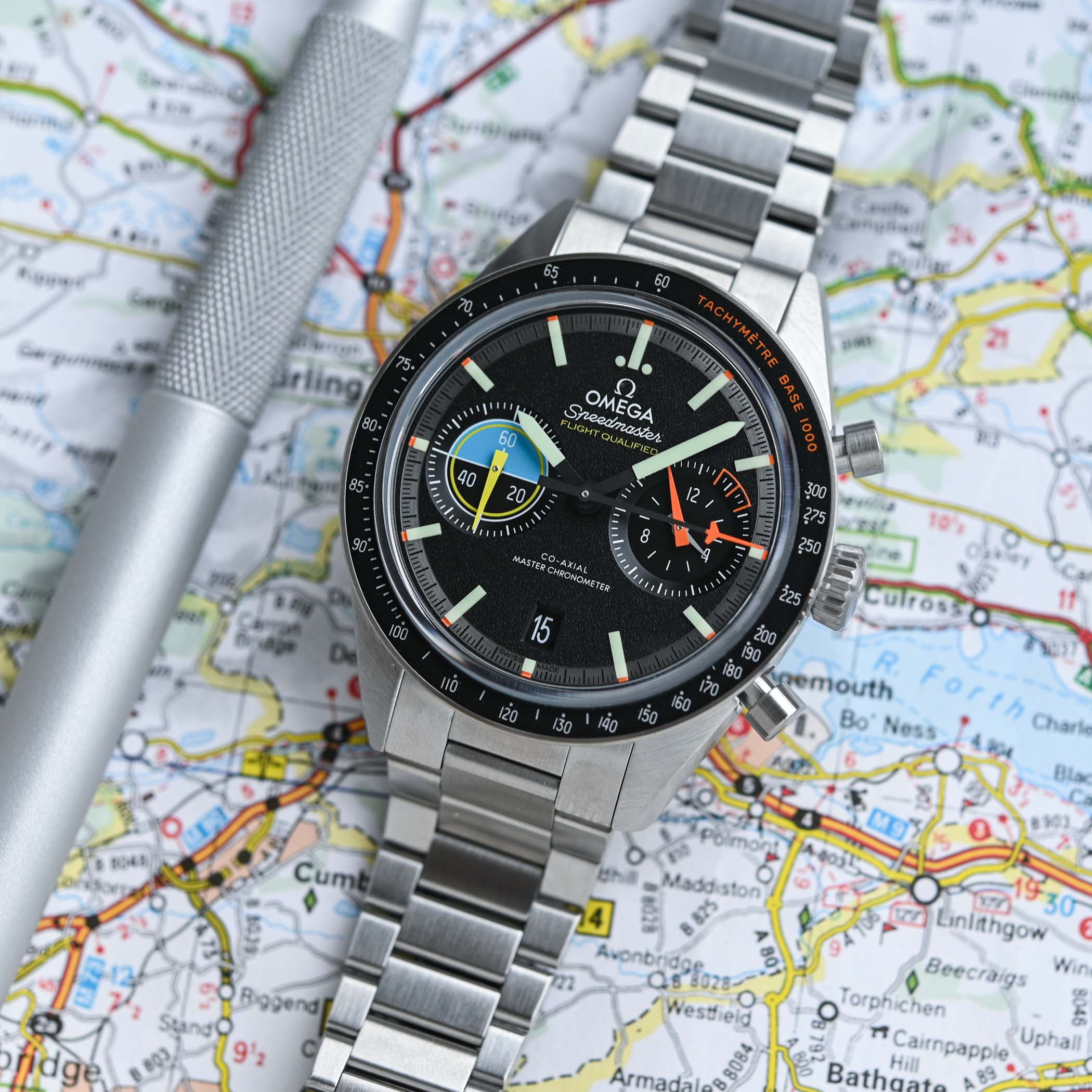
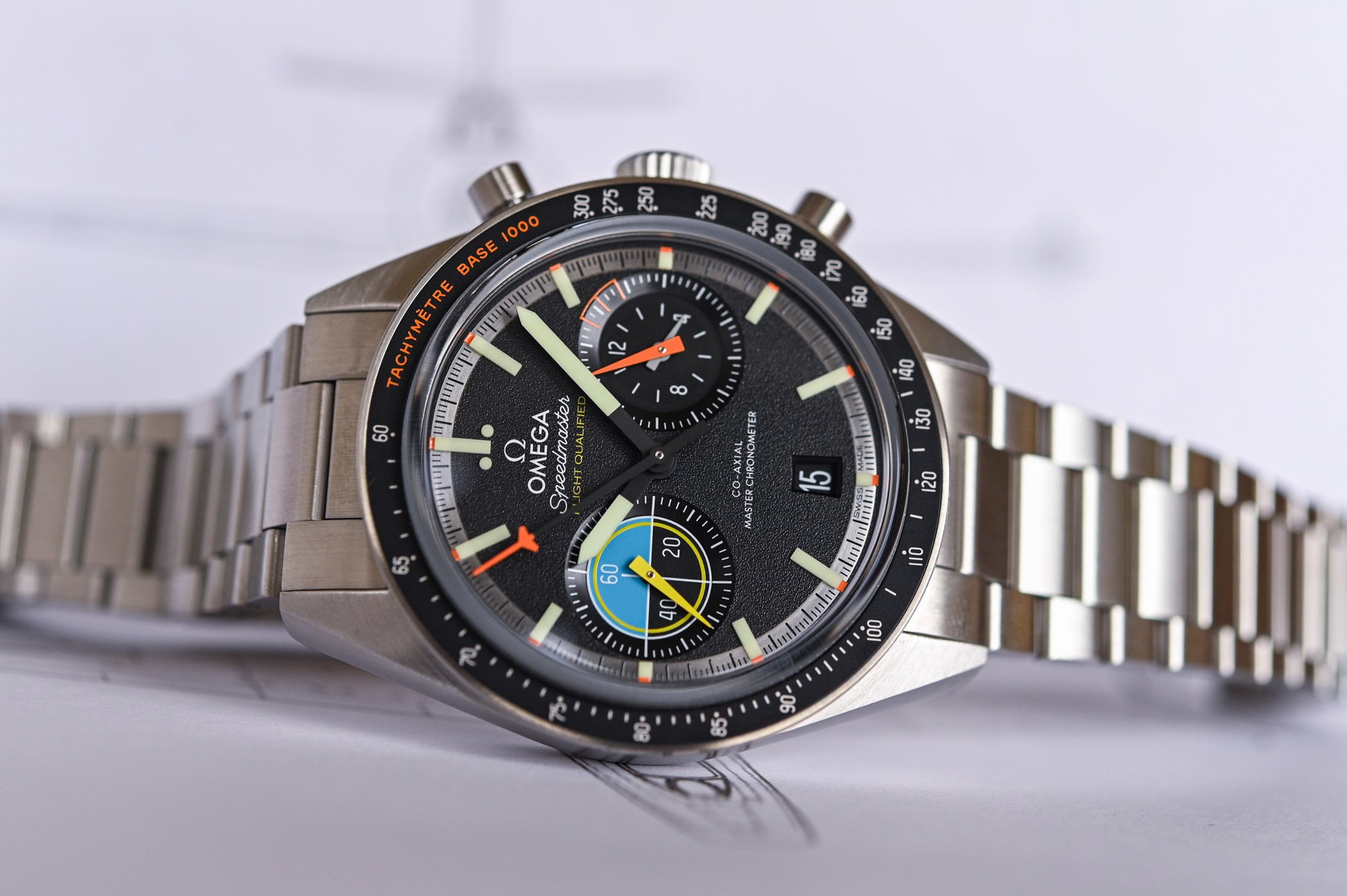
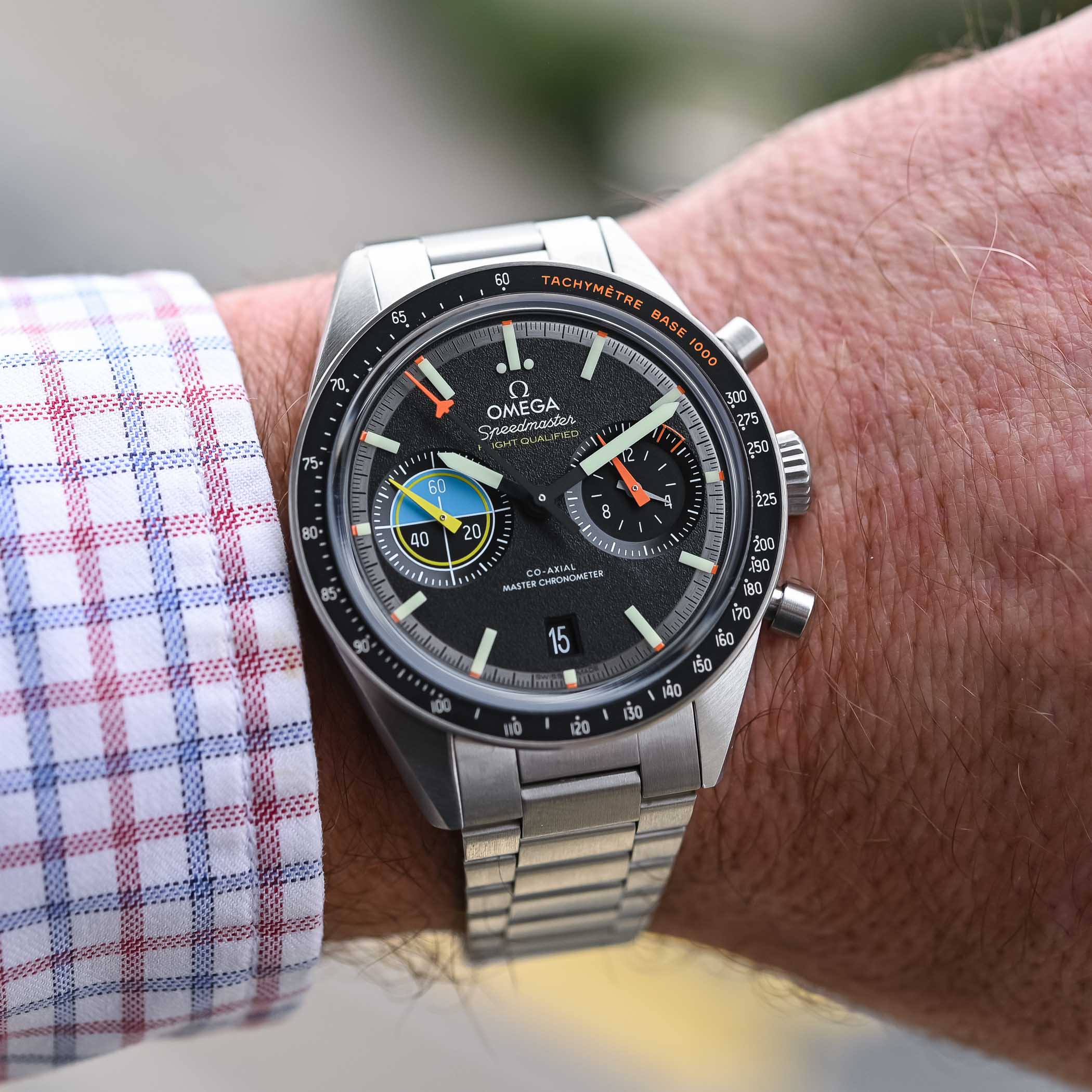
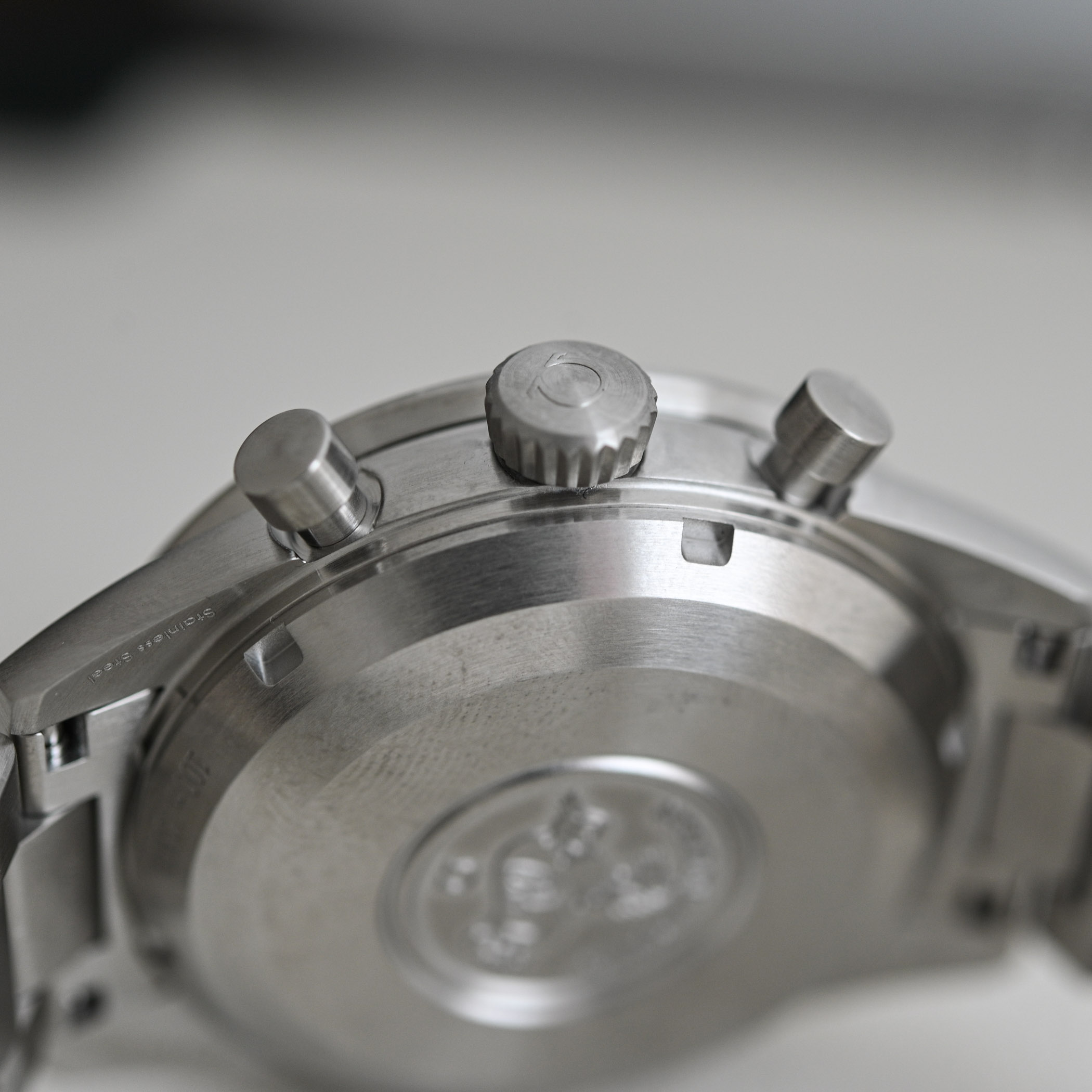
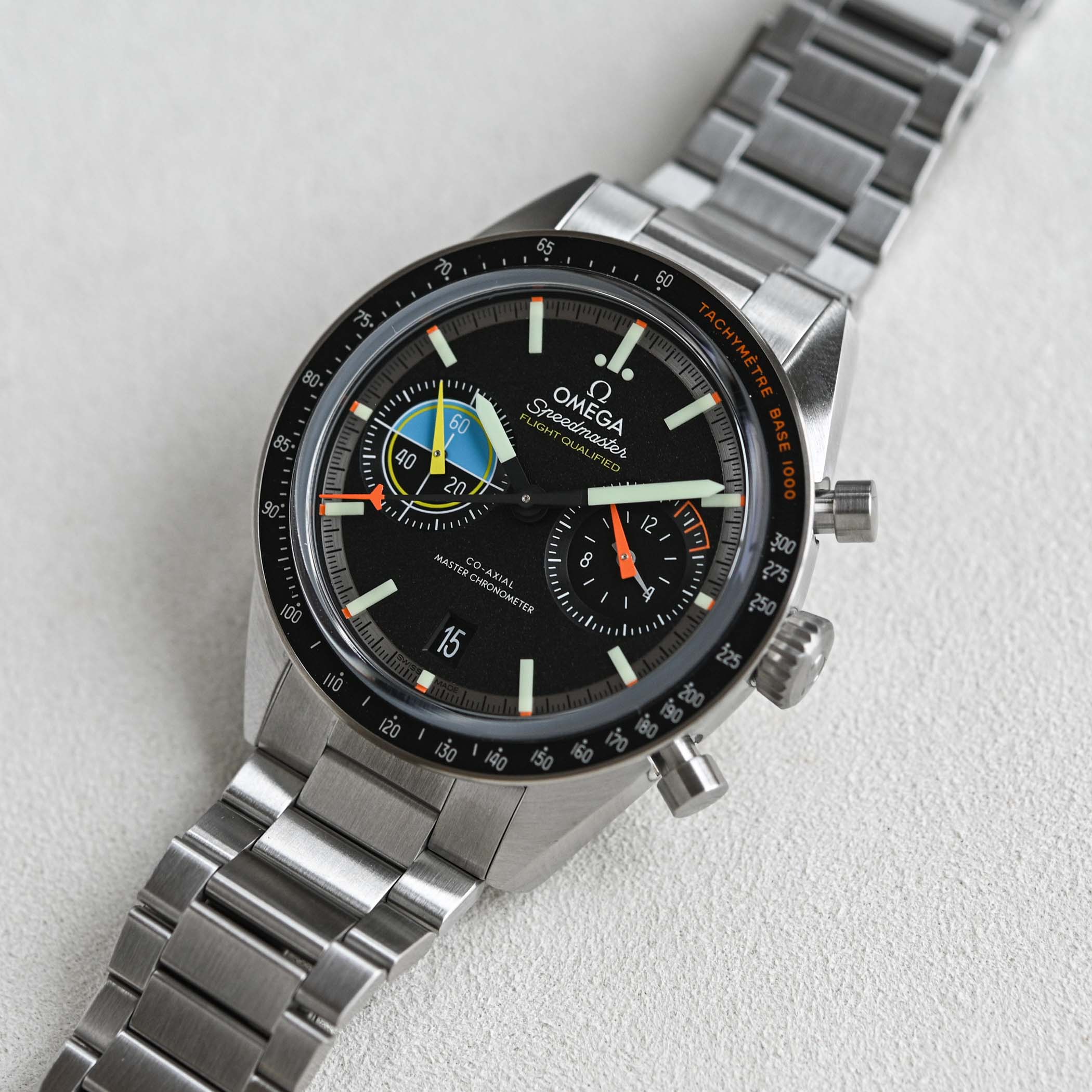
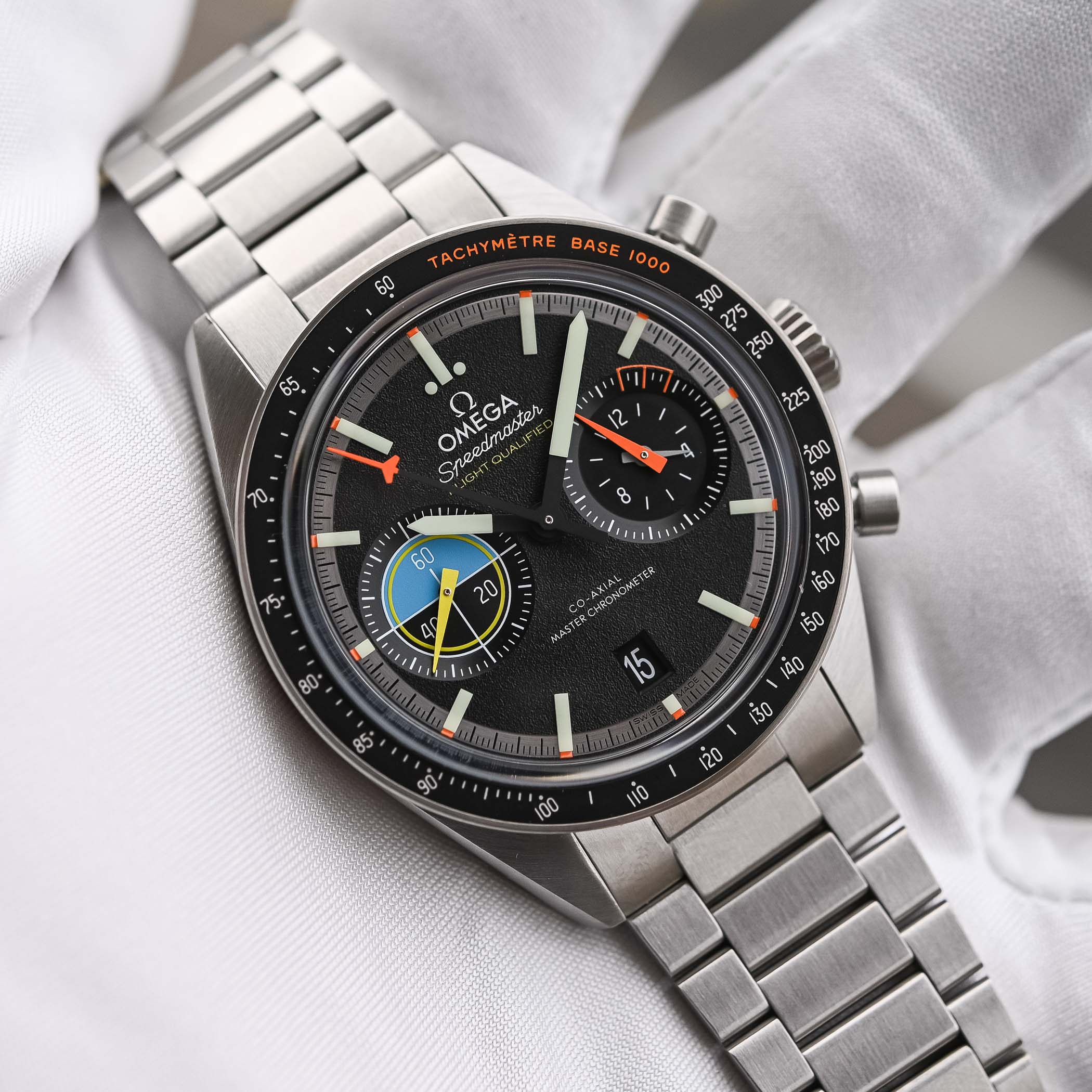
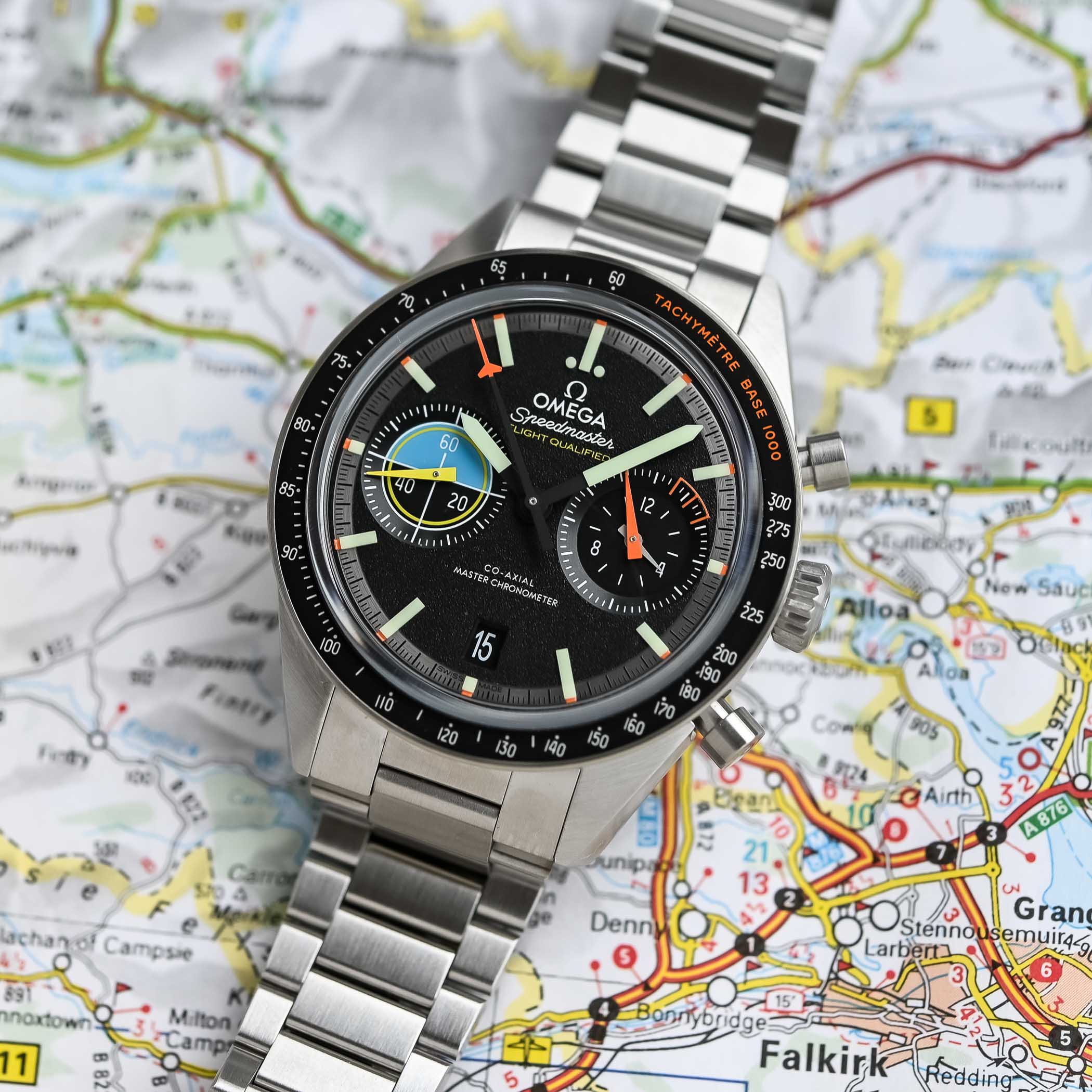
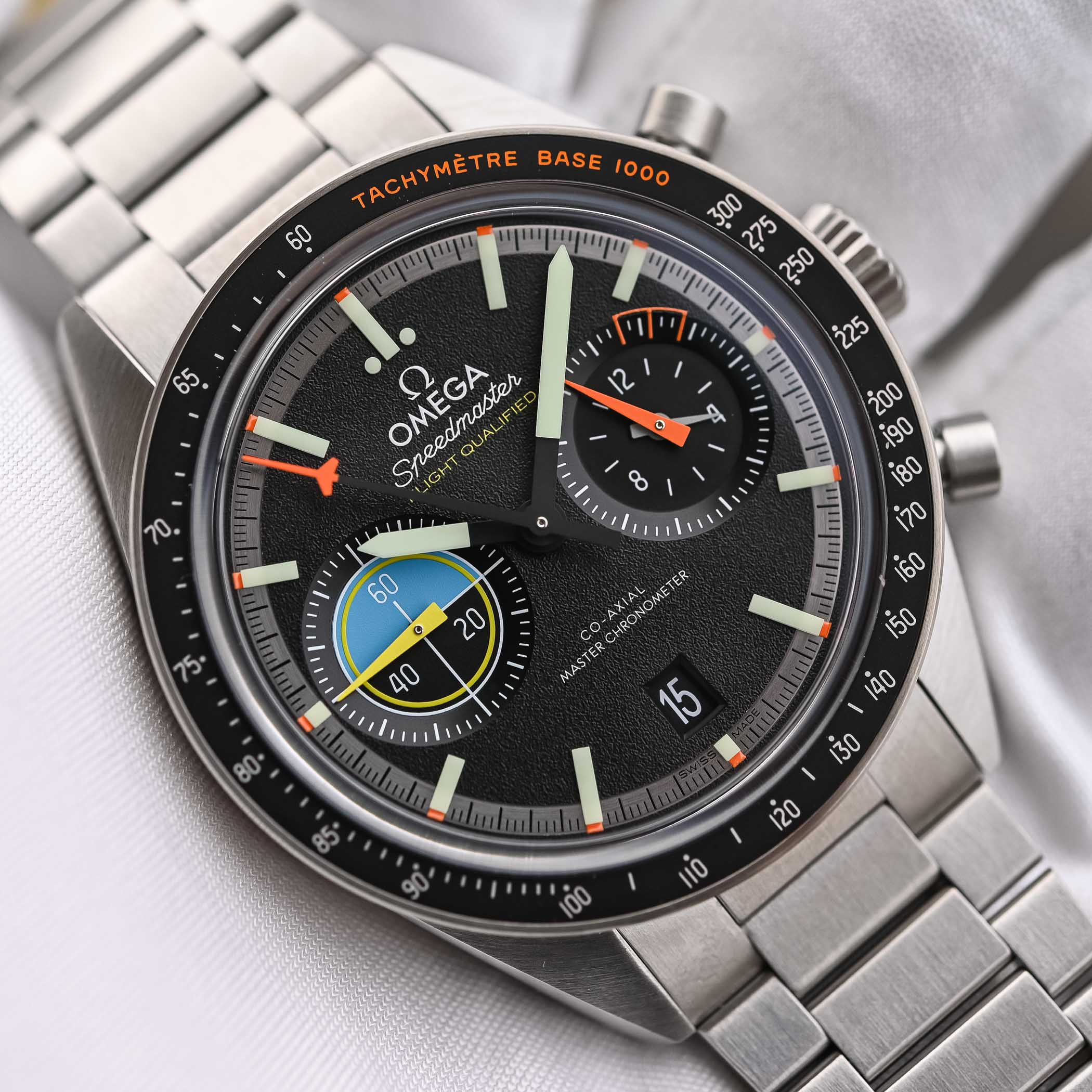
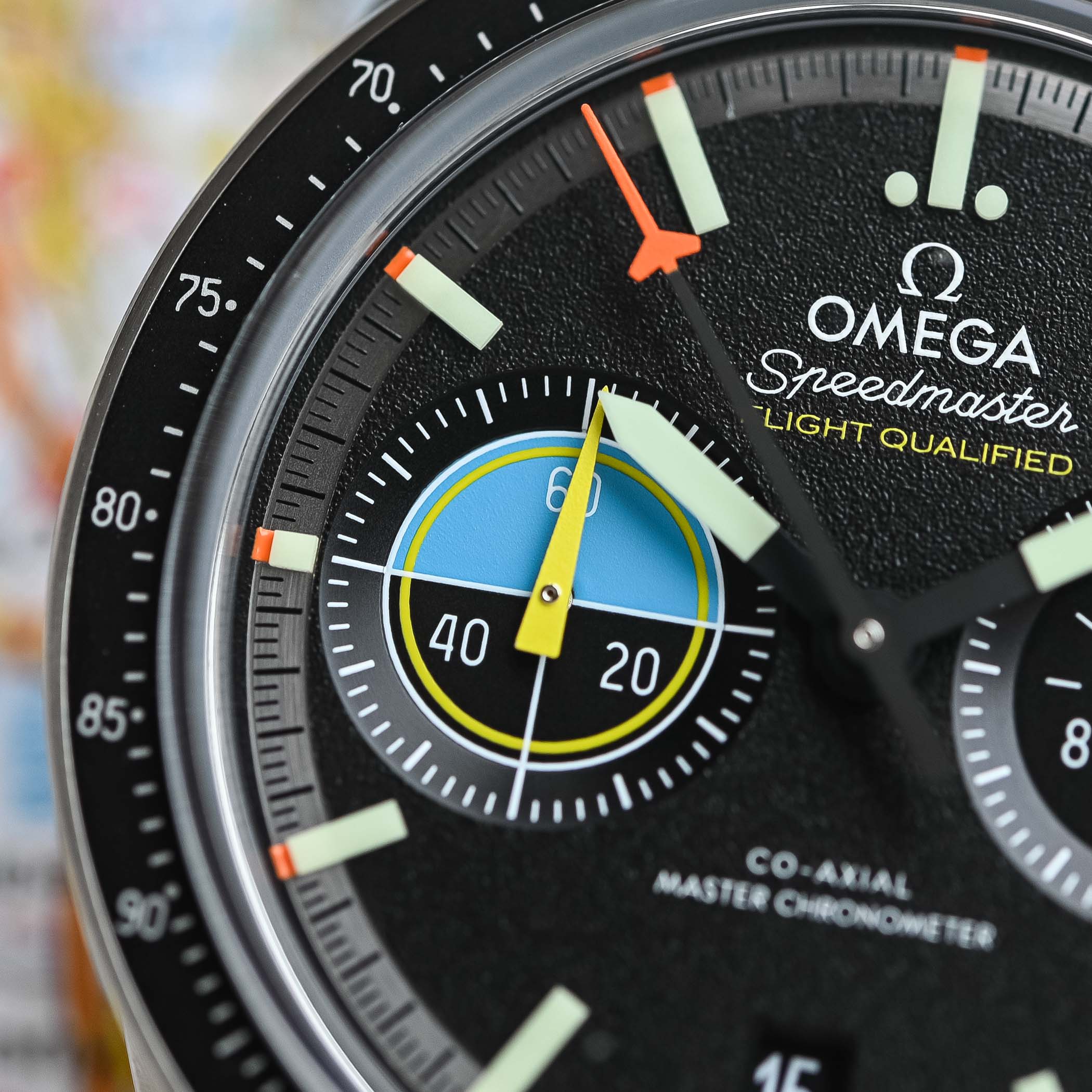
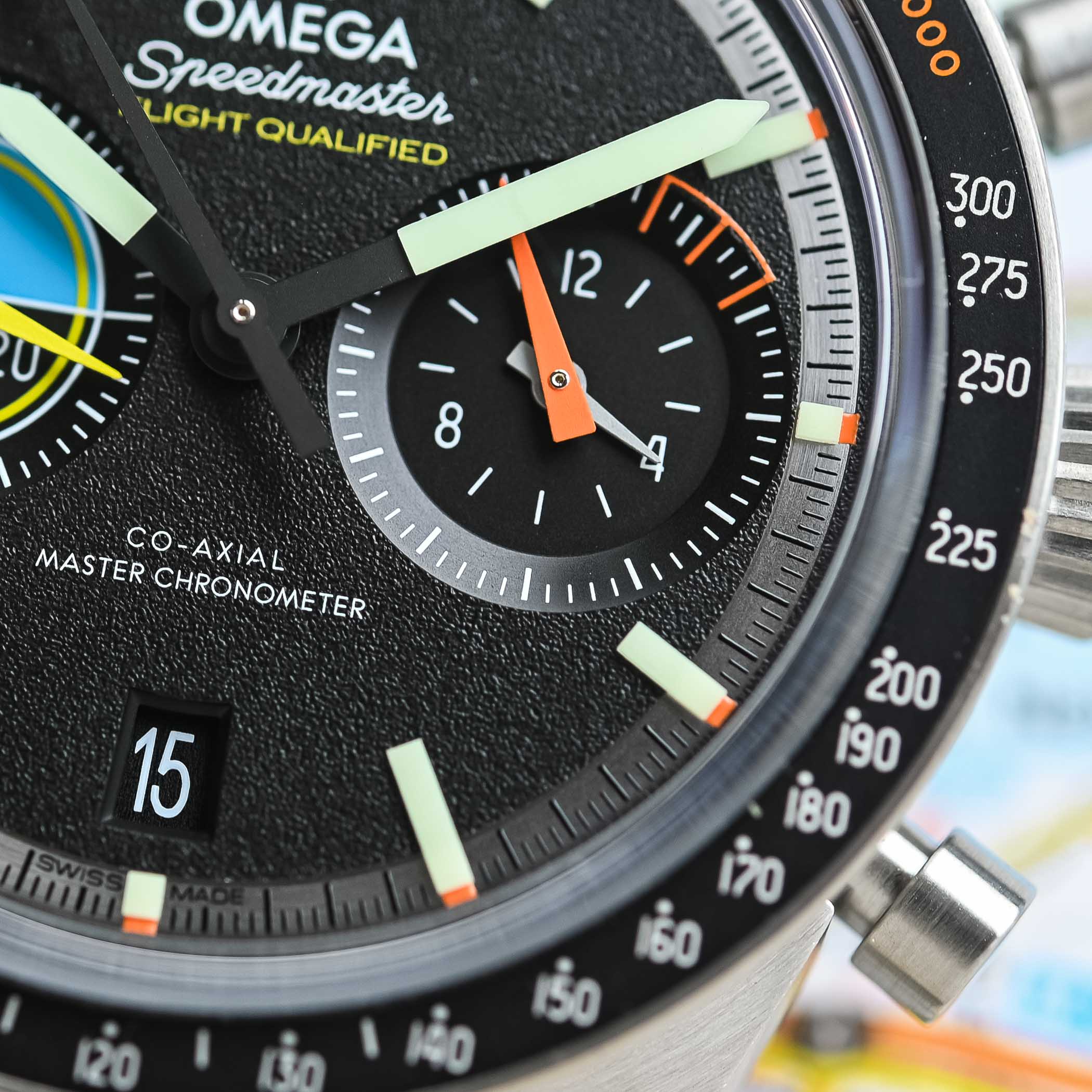
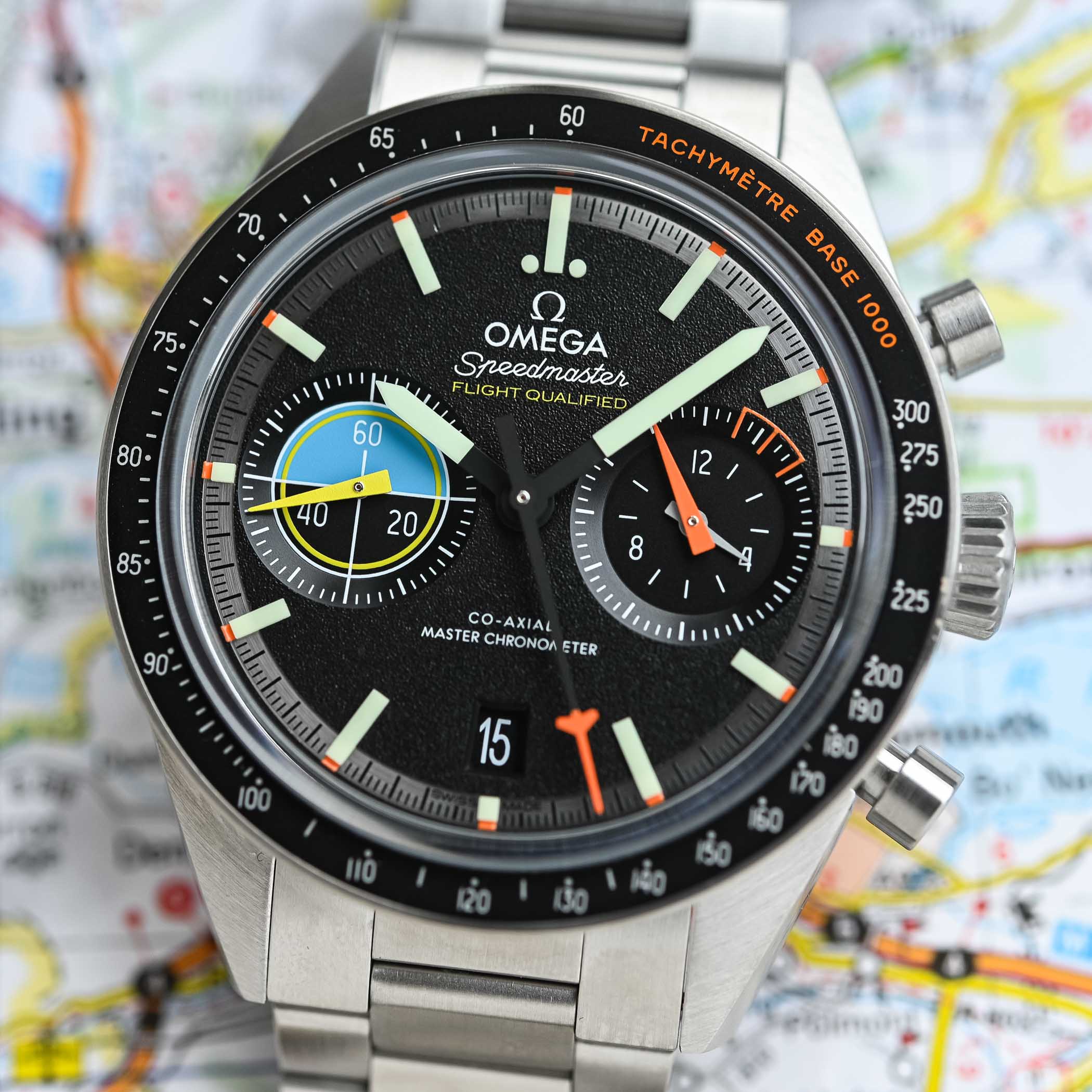
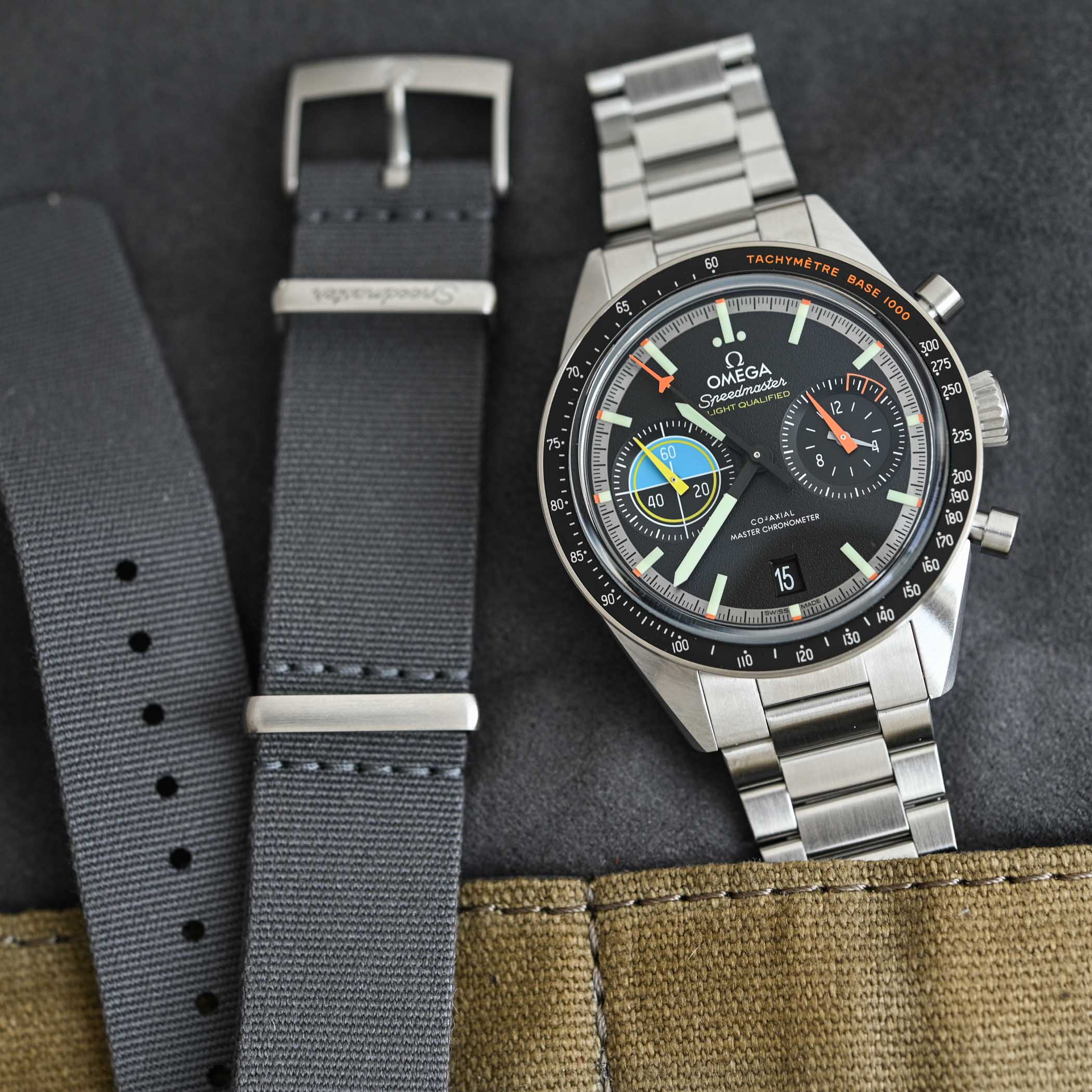
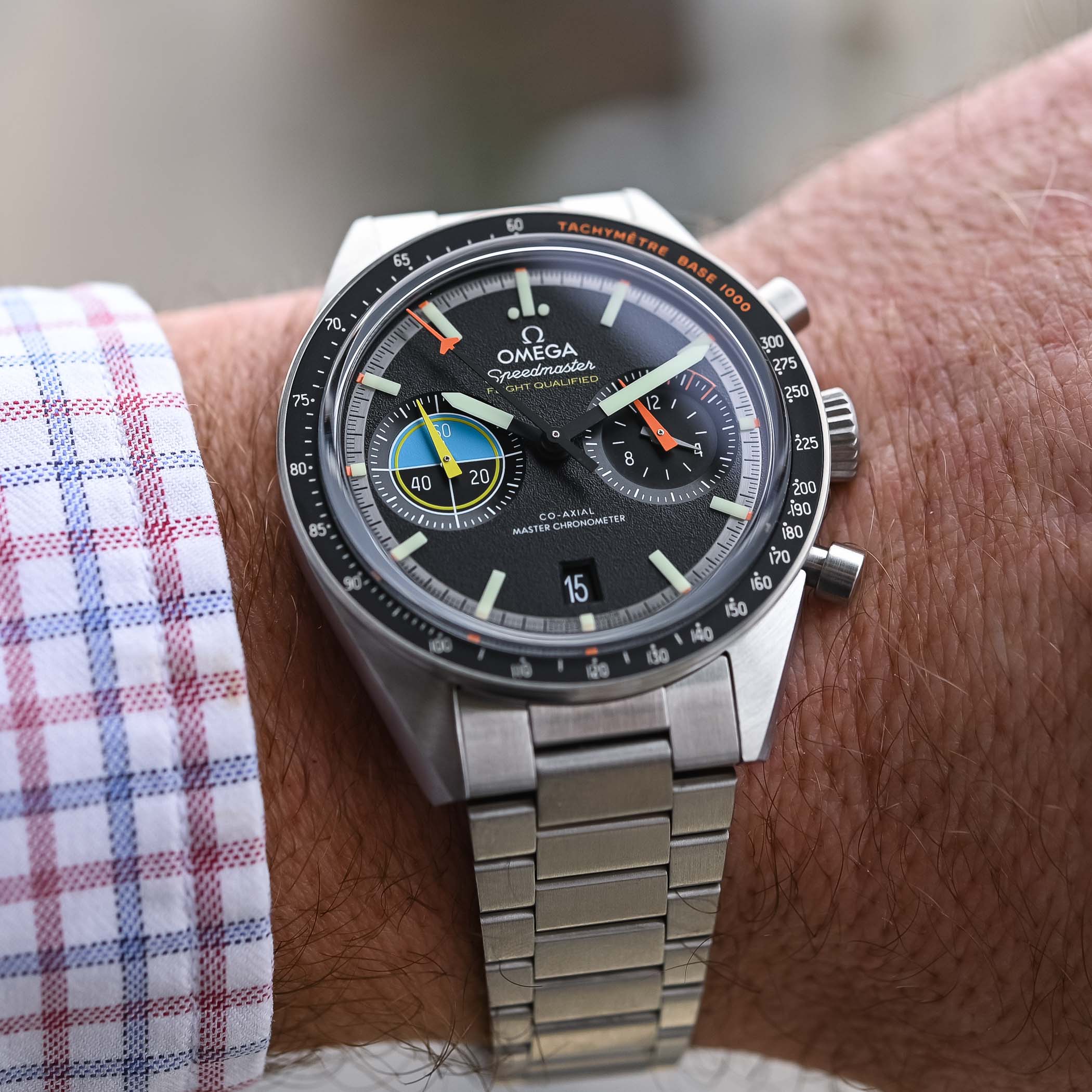
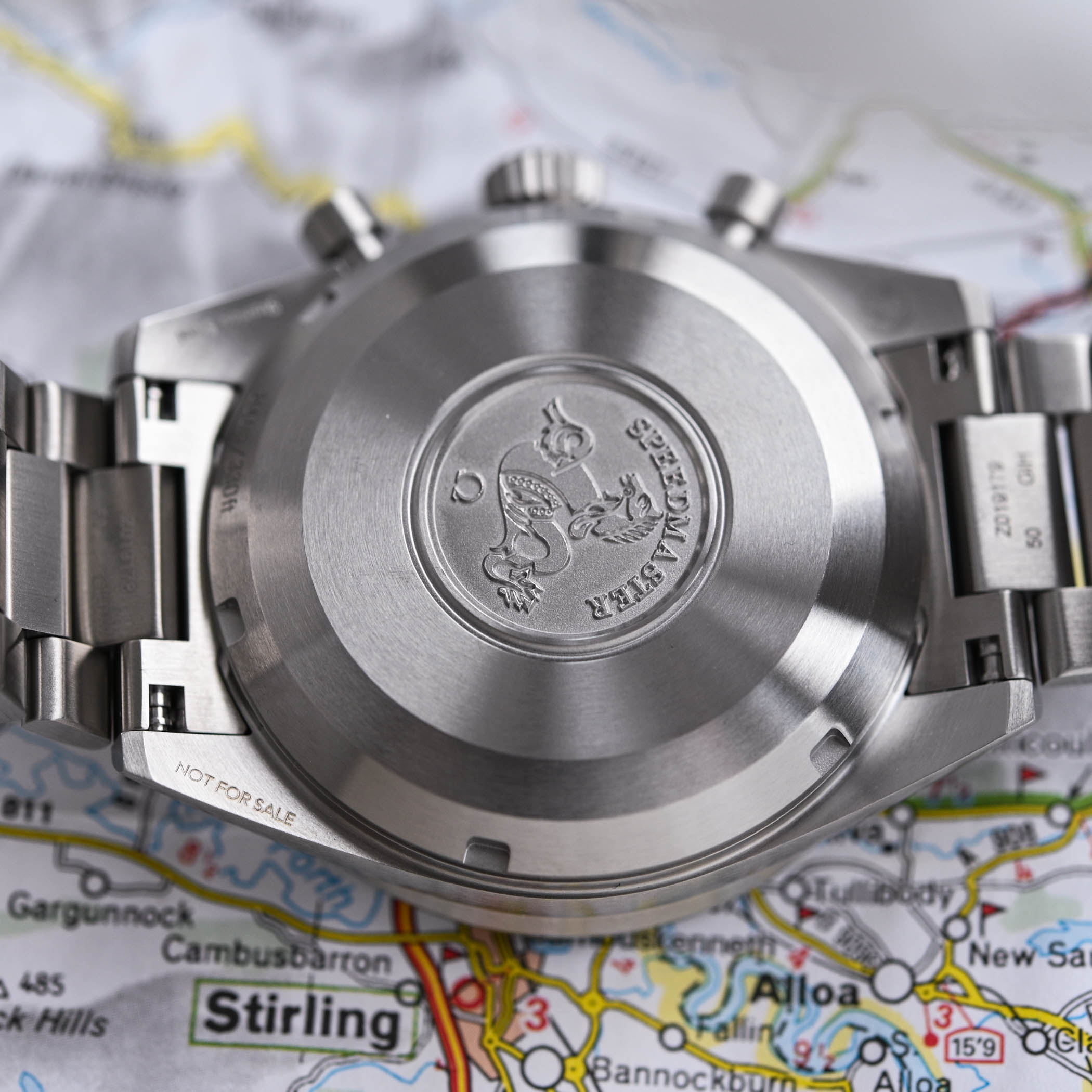
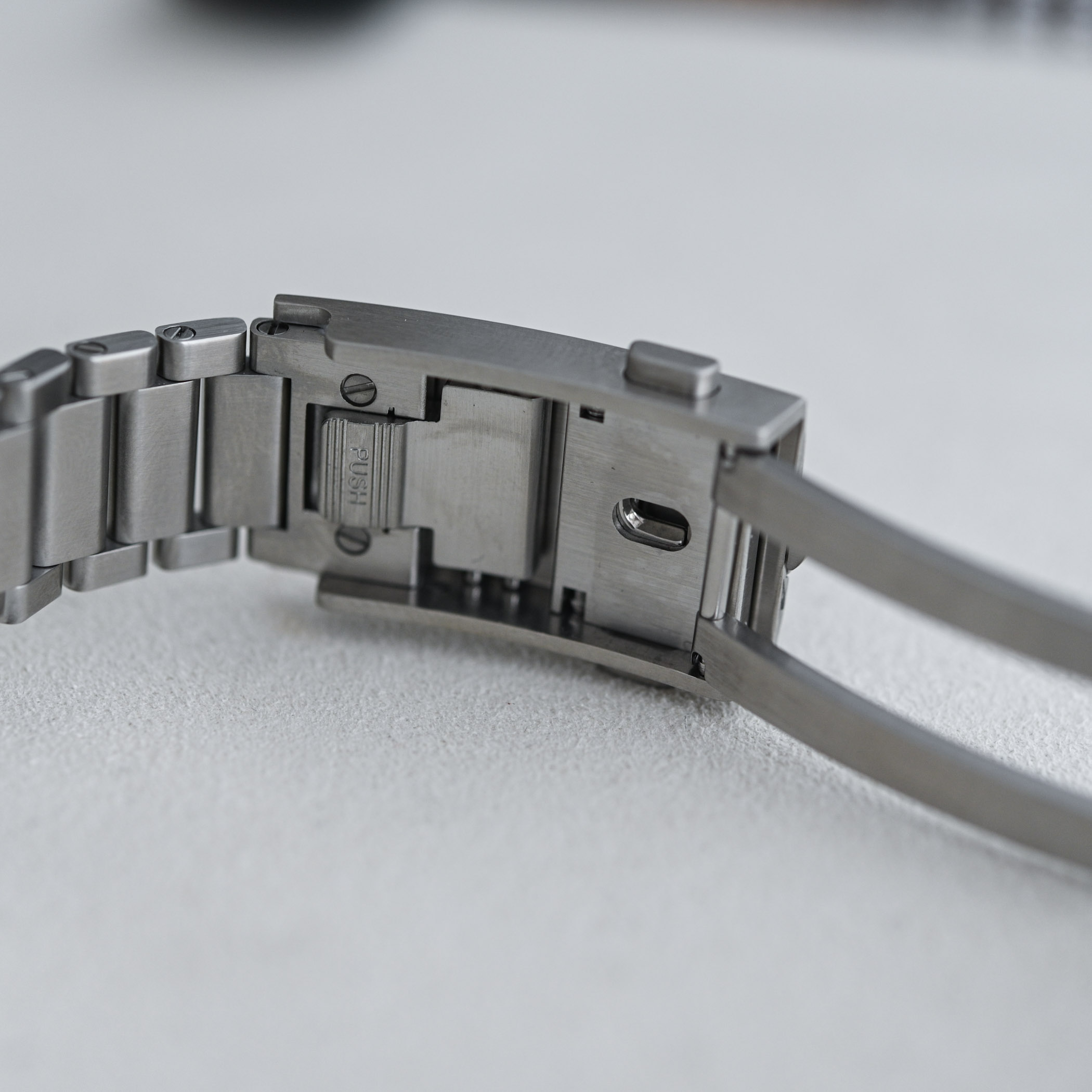
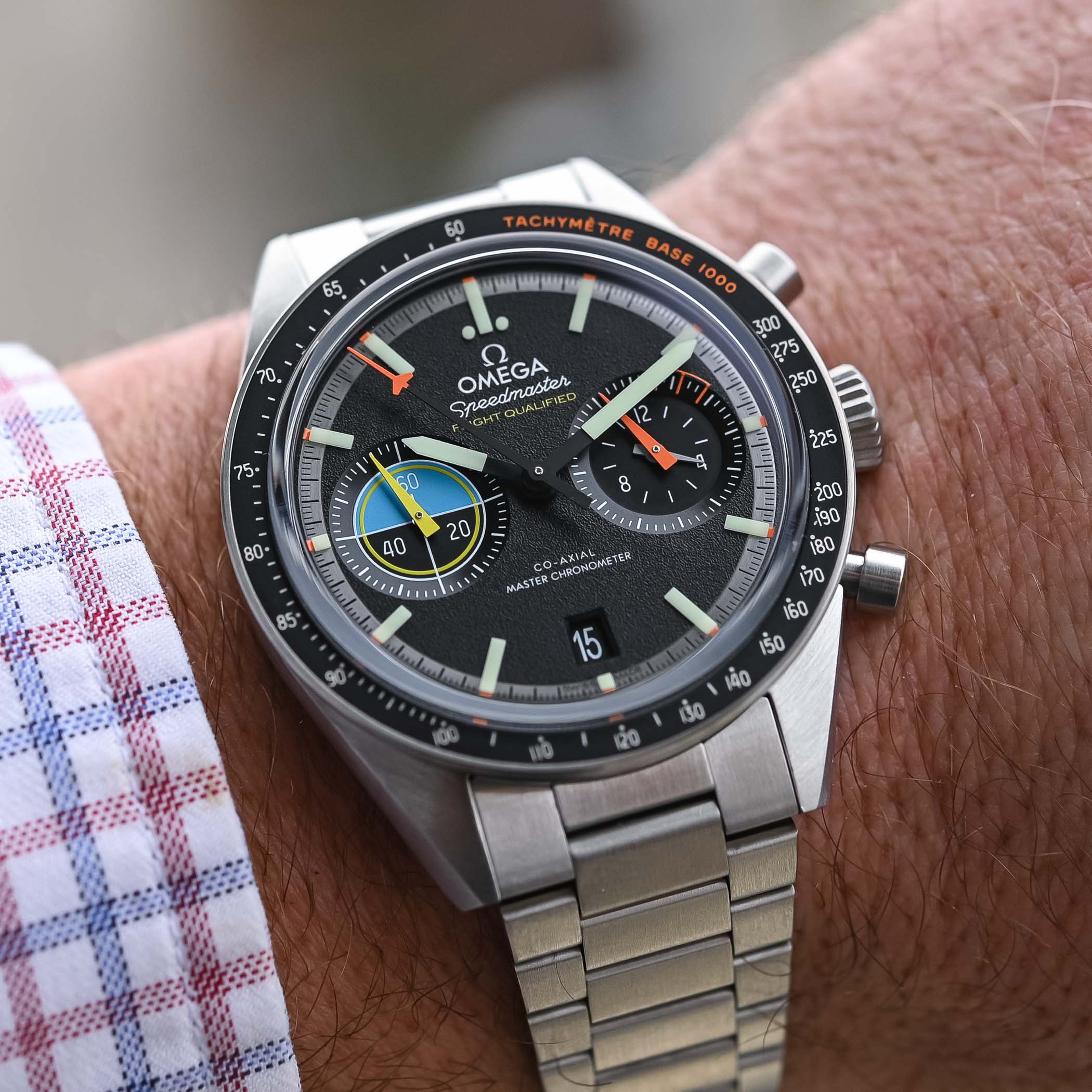
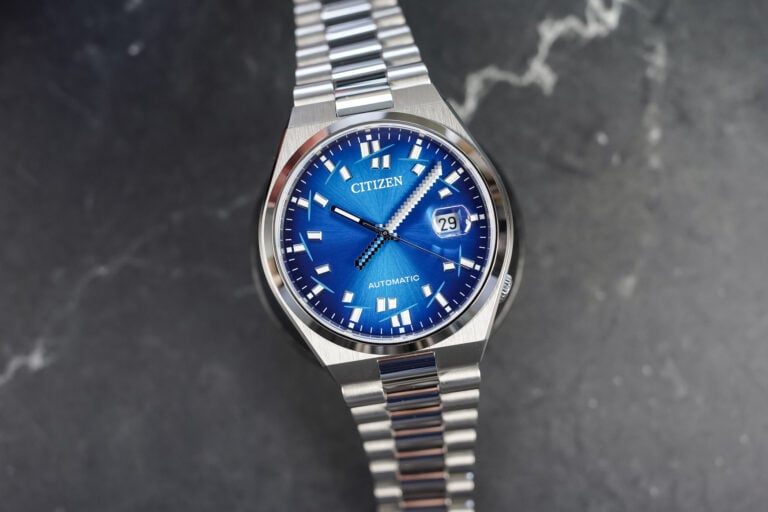
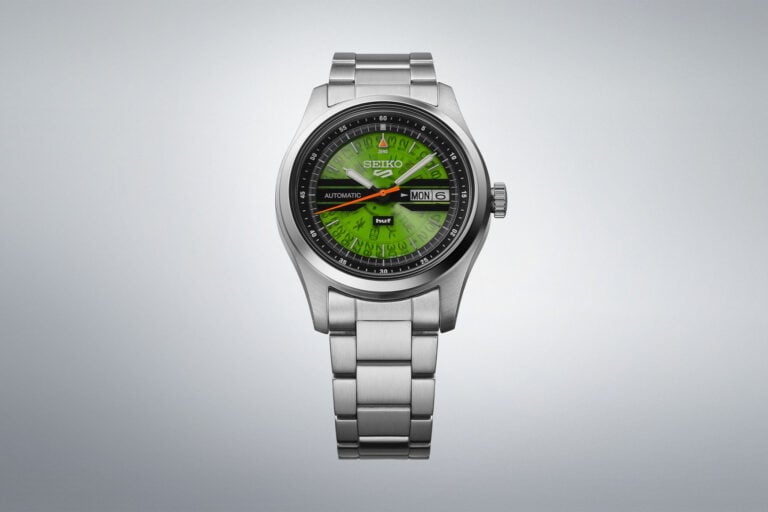
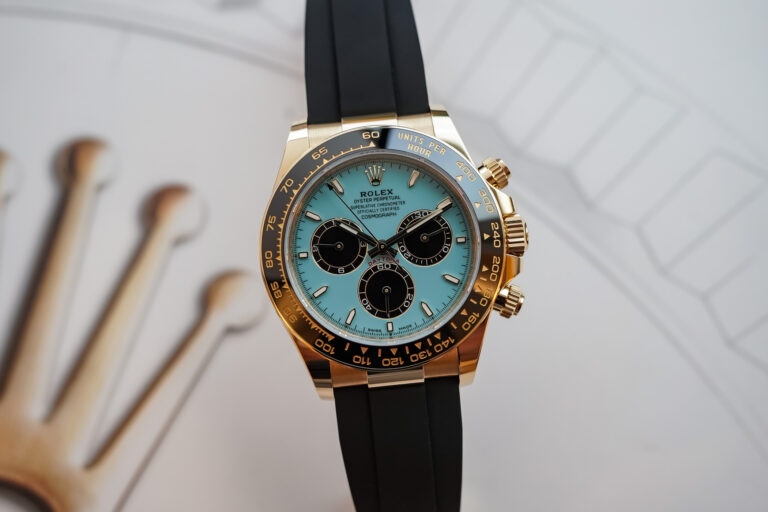
6 responses
The burn rate indicator at 3 minute increments make it easy for pilots to
Gauge fuel flow. Time the fuel burn for 6 minutes and multiply by 10 to get the hourly burn rate.
looks like the same quality and chunkiness of the revived Tudor Heritage Chrono monte carlo
@AB – Thanks for the explanation – it makes sens!
I love it but one thing is missing if you want to use it in plane: A flyback function. It helps when you using your chronograph to time your navigation legs (not useful though in a lunar capsule). That is why it was a requirement even in the 50s for the type XX (breguet, dodane….). I know that would have cost a lot more to develop a flyback but that would have made it far more elevant in cockpit.
Technically clever, blah, blah, blah but how many owners will ever do anything other than check the time? It puts me in mind of the man who will spend a fortune on a fully equipped professional kitchen but only ever make toast.
Without a rotating bezel the “flight qualified” bit of the name is very suspect. In addition the lack of any luminous material on the running seconds hand, the central chronograph seconds hand or the chronograph minutes hand make it wholly useless for night flying. (Luminous material on the chronograph hour hand would be useful too). It is a very curious omission as it undermines any suggestion that this watch could actually be used as a pilot’s watch. In a well-lit airliner cockpit at night it is not much of an issue but in a light aircraft or a military aircraft or helicopter it would be an issue. Ironically the Omega Planet Ocean chronograph or the Diver Chronograph would actually be better as aviation watches. The Speedmaster Professional would also be better. This Speedmaster is really for posing not flying.